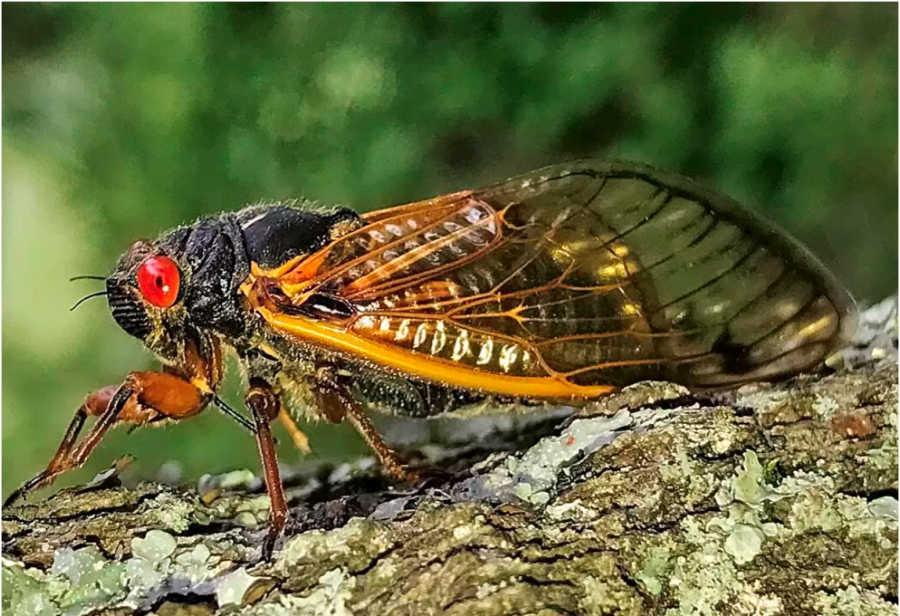Insect Reemerges After 17 Years
April 22, 2021
To many, a swarm of massive buzzing insects seems like a horrific nightmare. In couple of weeks though, this will become a reality.
Cicadas are insects with beady red or green eyes and are as long as one to two inches, or the length of two and a half quarters put next to each other. The reason these bugs seem so far-fetched is because we see them so rarely – the group which will emerge in the upcoming weeks, Brood X, emerges only every seventeen years. Up until now, they have been eating and thriving under the soil, but they will soon leave to find a mate above ground(2).
Aside from their peculiar look, Cicadas are also unique because of the daunting and loud drone-like sound that they make. This should not be cause for alarm, however; it’s just their mating call.
Luckily, these insects aren’t as dangerous as they look. The bugs aren’t harmful to either humans or other animals and act more as a pest than a threat. They aren’t poisonous and can’t bite or sting.
One possible reason for their cacophonous noise is to avoid predators: significantly fewer individuals are eaten during the years they emerge as birds which eat them may be frightened into avoiding areas with the noise(3).
Unfortunately, we won’t be able to get an in person view of the insects, as they will be emerging at the start of May in Washington, DC and just “15 states: Delaware, Georgia, Illinois, Indiana, Kentucky, Maryland, Michigan, North Carolina, New Jersey, New York, Ohio, Pennsylvania, Tennessee, Virginia and West Virginia”(4).
We don’t know much else about these incredible insects because they emerge so rarely; hopefully we can use this chance to learn more about the elusive Cicada.
1 https://www.cnet.com/home/yard-and-outdoors/billions-of-cicadas-are-coming-heres-how-to-keep-brood-x-out-of-your-yard/
2 https://www.britannica.com/animal/cicada
3 https://www.nature.com/scitable/blog/accumulating-glitches/cicadian_rhythms_why_does_the/
4 https://nypost.com/2021/01/26/deafening-brood-cicadas-will-descend-this-spring/



